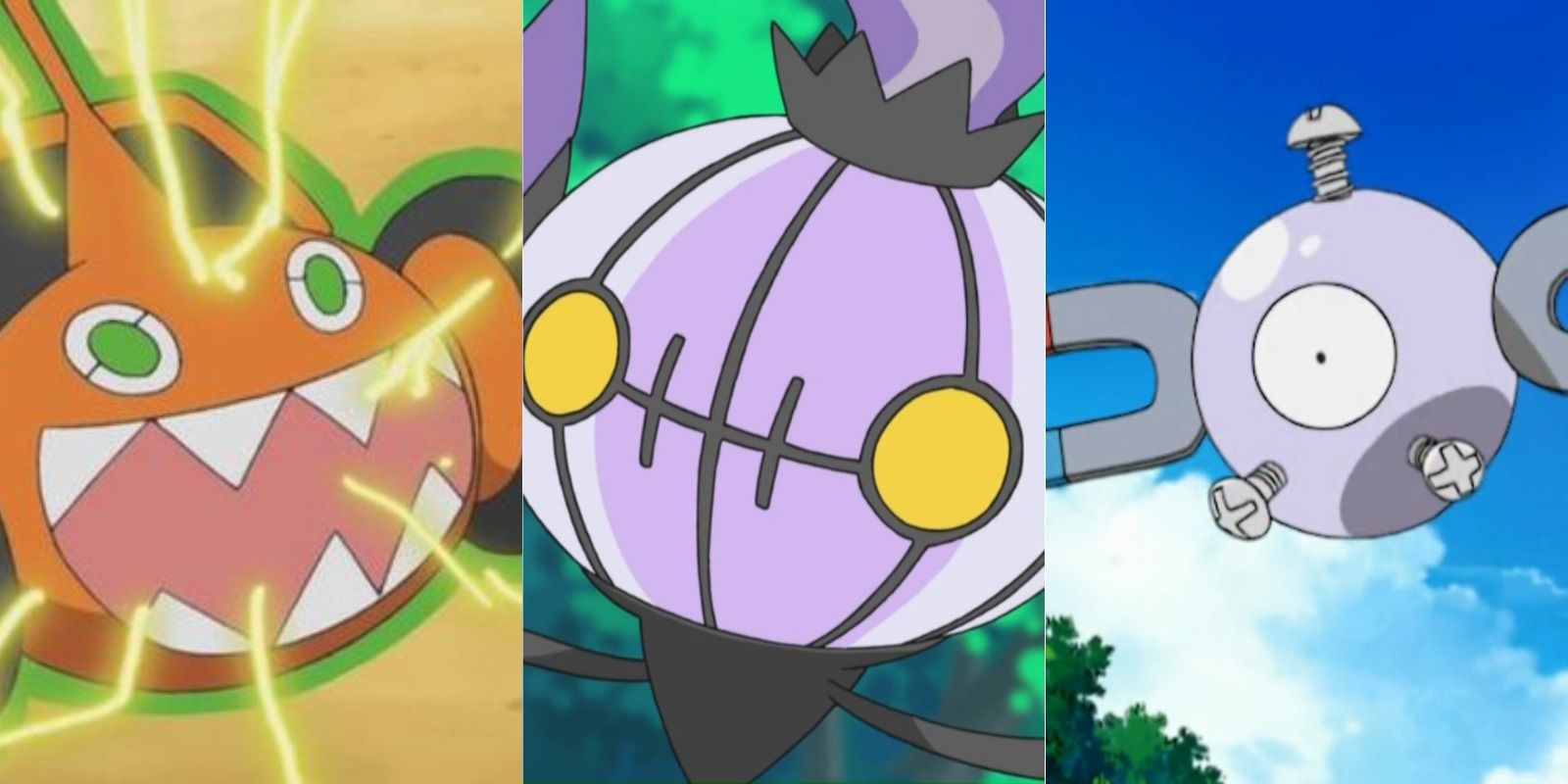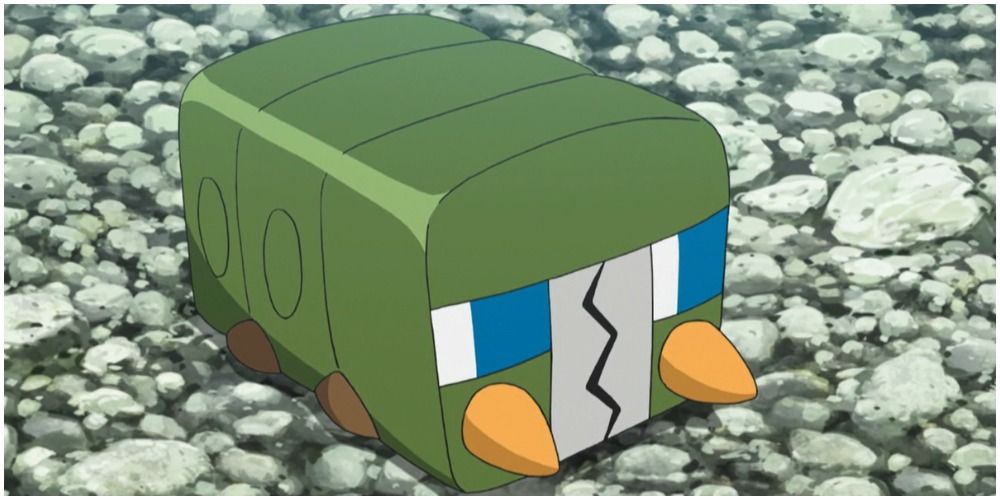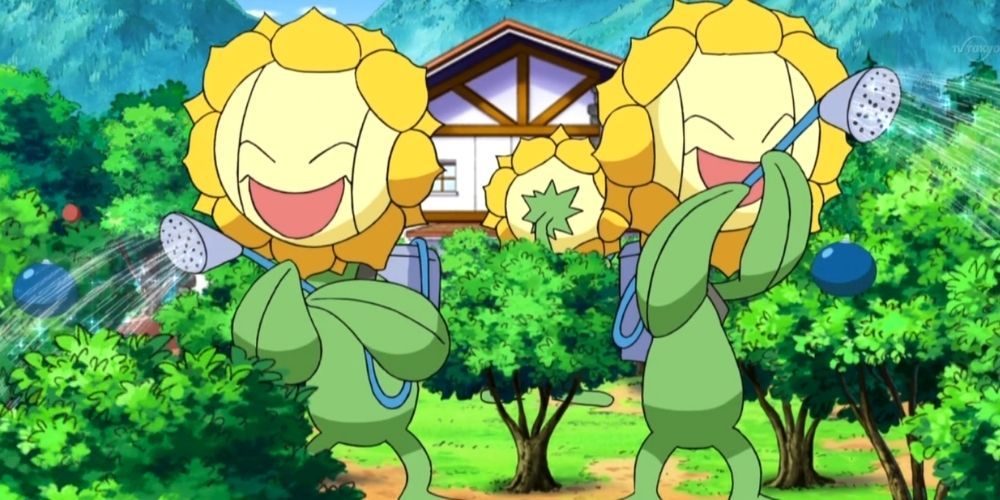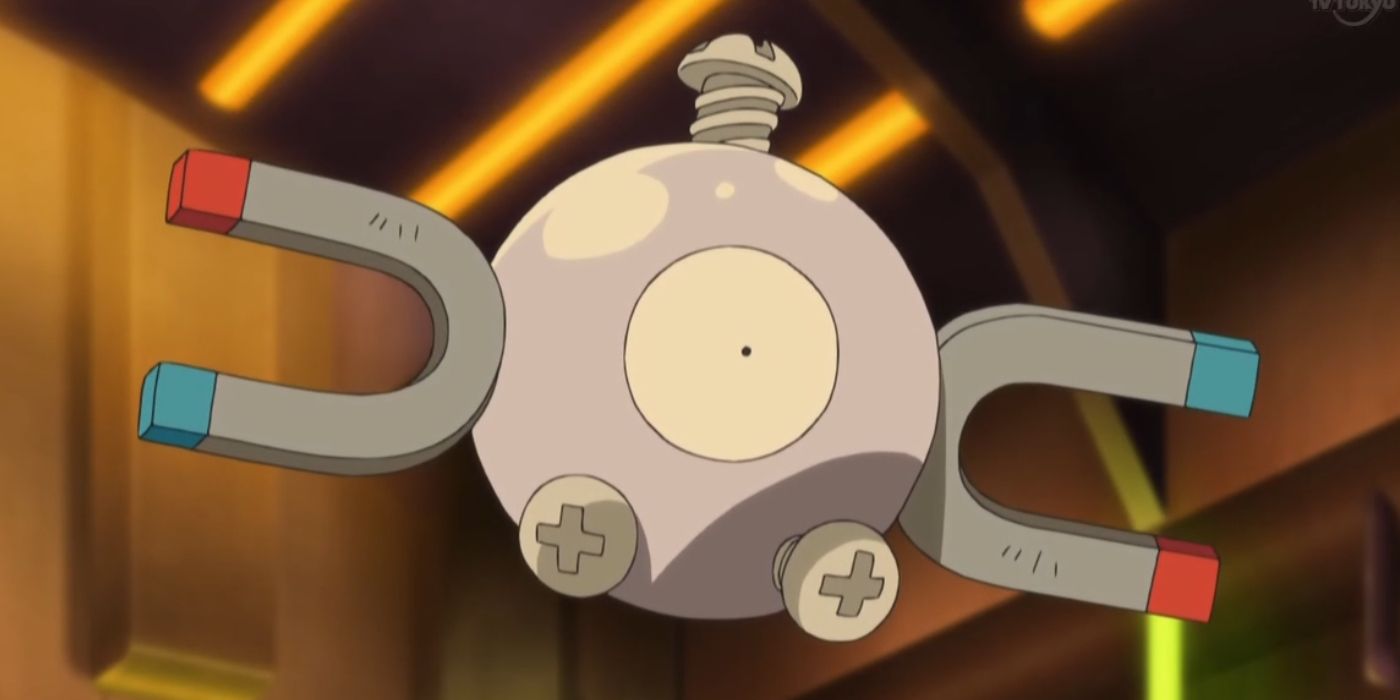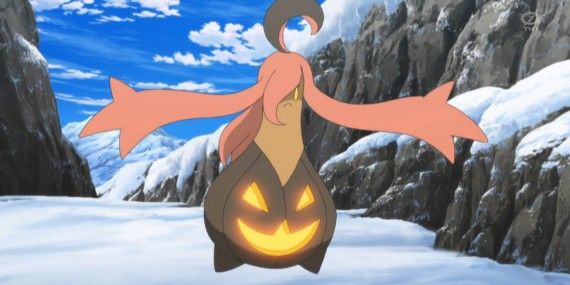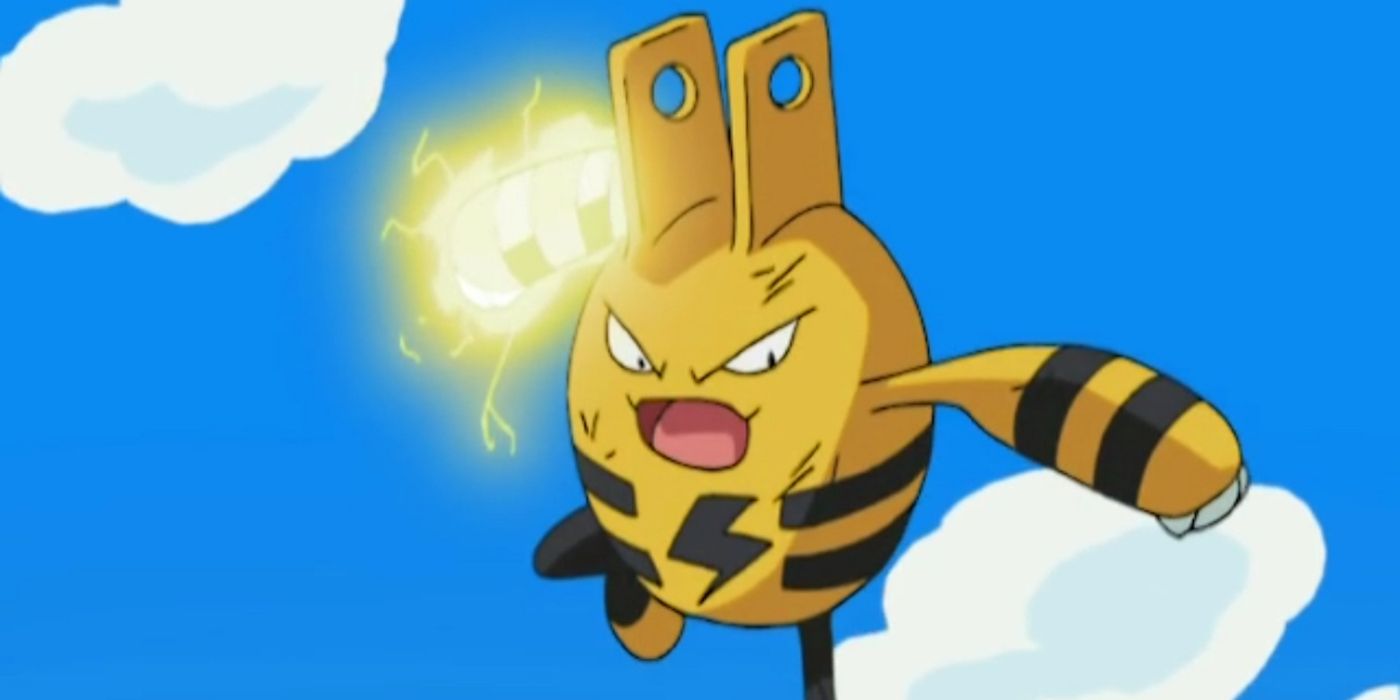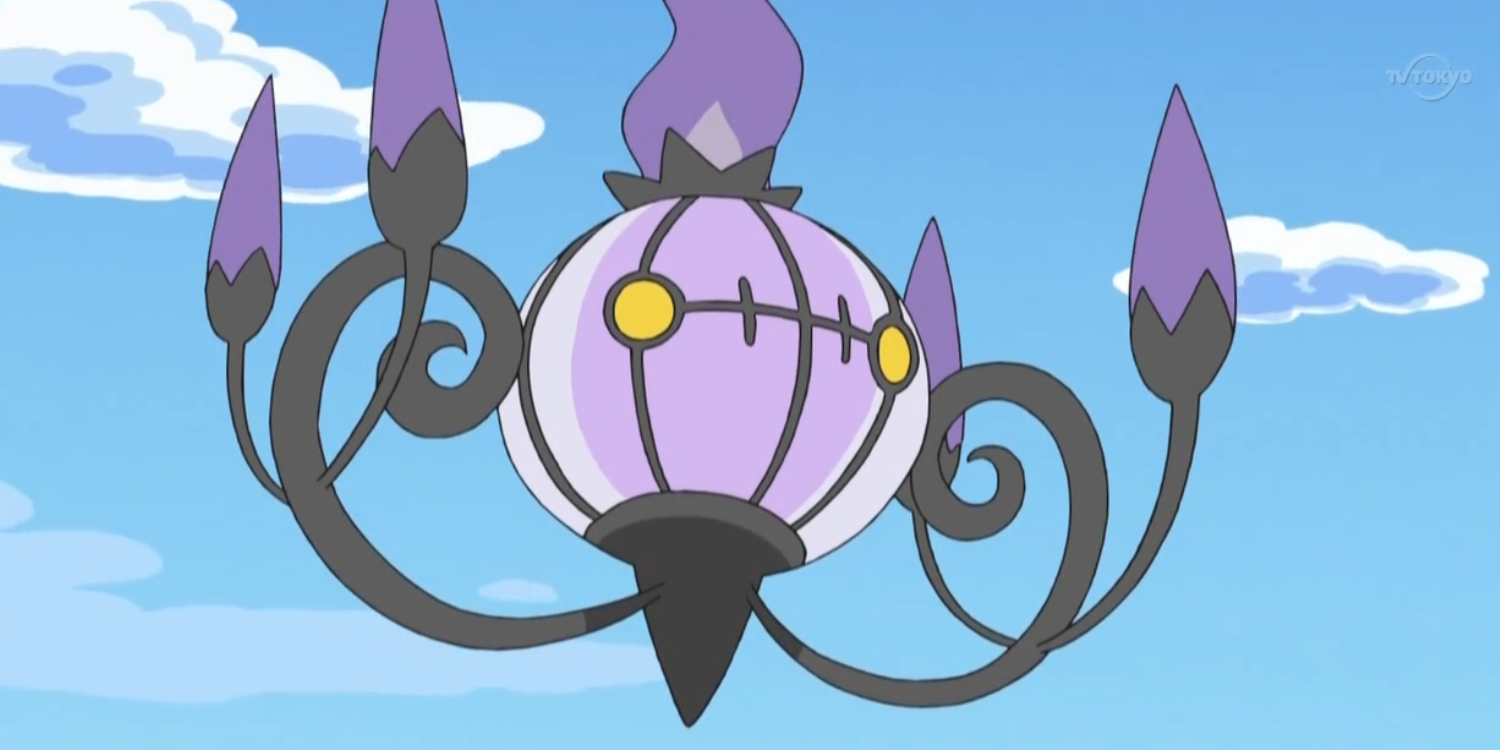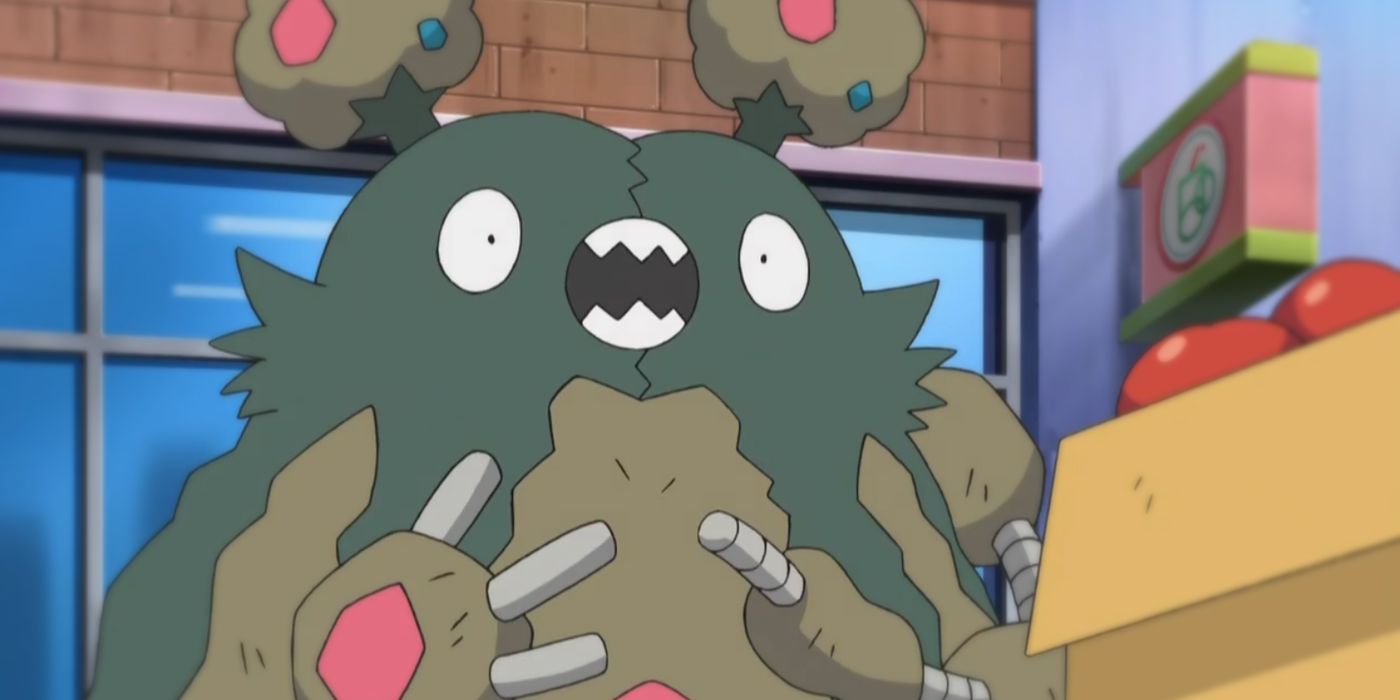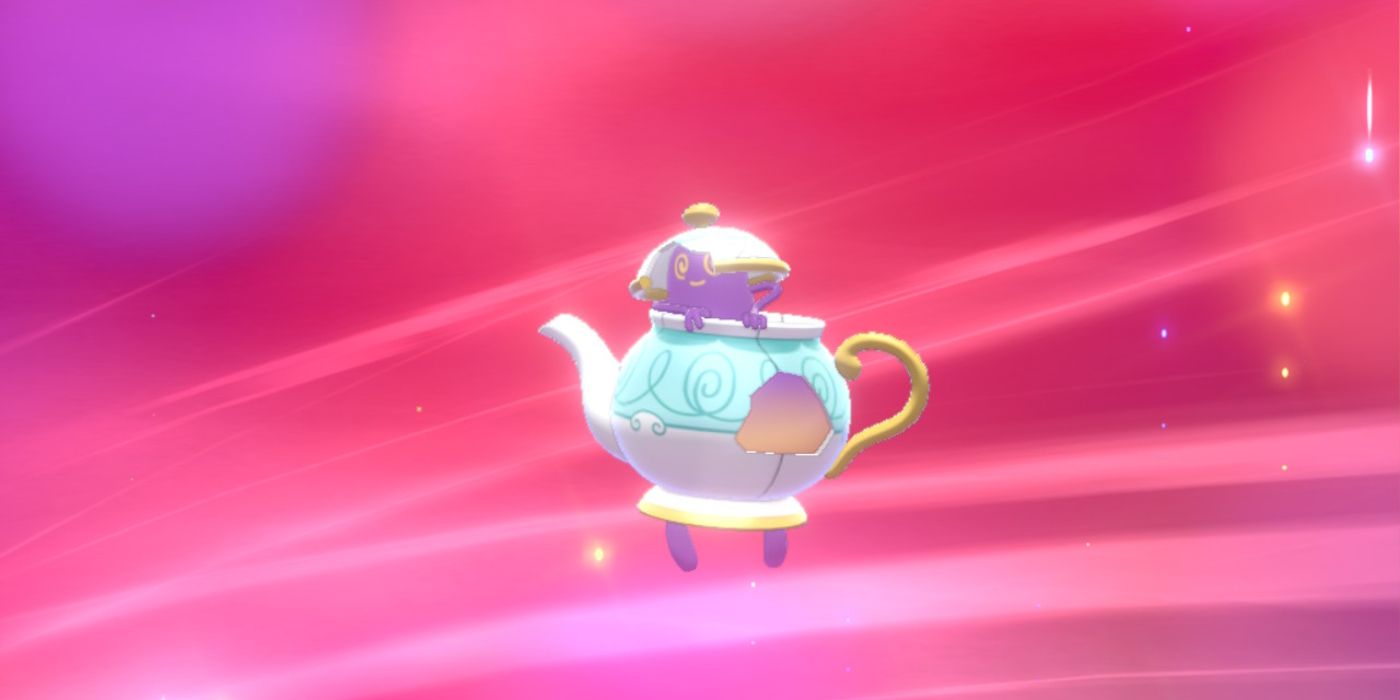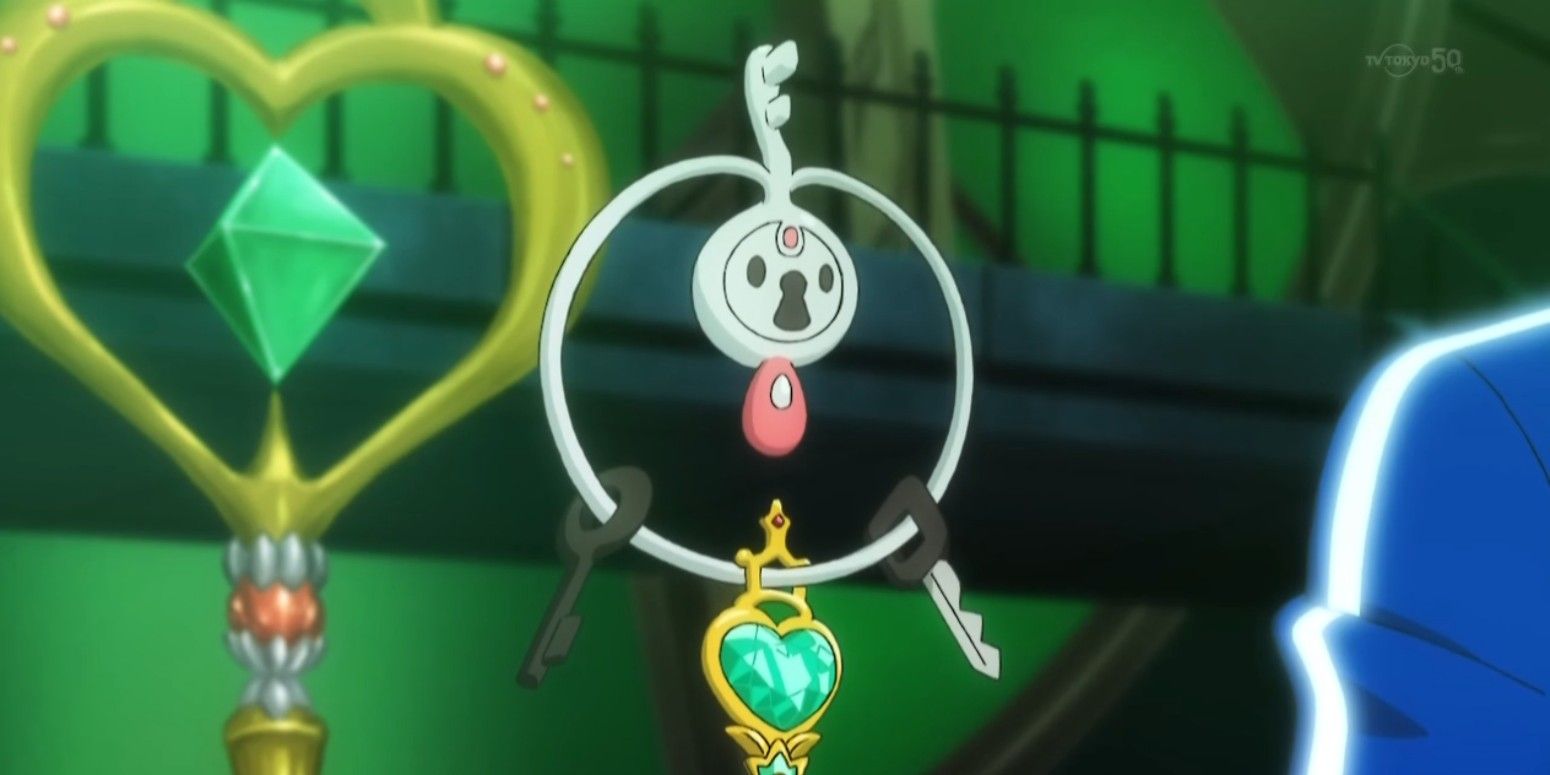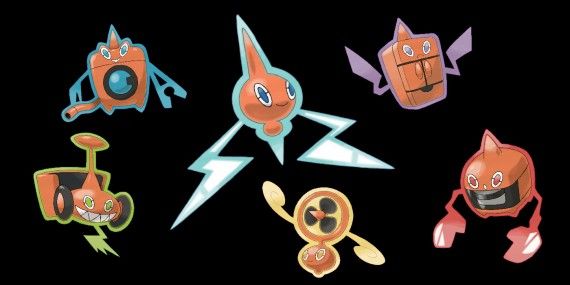Pokémon can draw inspiration from many different things. Some designs come from mythology and legend, with fantastical creatures appearing throughout every generation. Some, like Audino and Conkeldurr, are the Pokémon versions of specific real-life professions. And some like Vanilluxe and Appletun, are literally pieces of food.
Then there are those Pokémon that are kind of just everyday objects brought to life. Whether they're keychains, chandeliers, batteries, or teapots, these mons are the subject of criticism and acclaim. Many fans consider them inspired, while others think they're just lazy. These designs are part of Pokémon, though, ever since the first 150. They're not going anywhere anytime soon.
Charjabug
Charjabug is the pre-evolution of Vikavolt, introduced in Generation VII. It is a dual-type Electric/Bug that ranks as one of Alola's strongest Pokémon and a staple of many Gen VII teams.
At first sight, Charjabug resembles a battery. And it indeed is a battery, which might suggest a lack of interest from the designers. However, Charjabug's design also includes elements from the denkimushi, a Japanese caterpillar whose sting feels like a small electric shock.
Sunflora
Introduced in Generation II, Sunflora is the evolution of Sunkern and a favorite of moms all over the Pokémon world. Sunflora may be one of the cutest Grass-types ever, but that doesn't take away the fact that it is literally a sentient sunflower.
Unlike other Pokémon, whose designs include at least some alteration to their real-life inspiration, Sunflora's is as simple as it gets. It's a sunflower with two legs and a perpetual smile on its face. Many fans consider it one of the worst Pokémon due to its simplicity. Its cuteness is undeniable, though.
Magnemite
Magnemite is one of the original 150 Pokémon introduced in Generation I. As such, it is a fan favorite of many Genwunners and usually escapes criticism of its design, even though it's as straightforward as it gets.
Magnemite is a floating magnet with a large eye in the middle. Like most Pokémon, however, there's more to its inspiration than meets the eye. Magnemite represents electromagnetism and is one of the most ancient Pokémon to exist as there are 3,000-year-old carvings of it in the Ruins of Alph.
Gourgeist
The Pokémon anime showed a celebration called the Gourgesit Festival, a thinly-veiled version of Halloween. People wear Pokémon costumes and trade candy with each other all through the night. The name comes from Gourgeist, a dual-type Ghost/Grass Pokémon native to the Kalos region.
Gourgeist itself takes inspiration from a traditional jack-o-lantern. Its different sizes also reference the tradition of trying to grow the bulkiest pumpkin for Halloween. Its upper body references the candles that light the insides of jack-o-lanterns.
Elekid
Quite possibly the angriest-looking baby Pokémon, Elekid is another Electric-type whose design is apparent to anyone who sees it.
Elekid is very clearly an AC power plug. What's more, its design doesn't have any other inspiration behind it. It is simply a power plug brought to life. There's a certain charm to its simplicity, but it's puzzling that it doesn't get the same level of hate as other equally uninspired Pokémon.
Chandelure
Despite its seemingly frail appearance, Chandelure is an excellent - and disturbing - Pokémon, while also being one of the strongest in Generation V, in fact. Within the context of the franchise, Chadelure's fire is capable of burning a person's spirit.
Chandelure clearly draws inspiration from a chandelier, something that becomes even more apparent by the fact it apparently resides in dilapidated mansions. It also borrows inspiration from will-o'-the-wisps and the idea of haunted mansions.
Trubbish & Garbodor
The Garbodor family gets a lot of hate. Widely considered as two of the worst Pokémon ever created, they're one of the reasons why Generation V had such a bad reputation when it first came out.
Trubbish and Garbodor are trash, literally. The former is a small trash bag with bunny-like ears, whose name is a combination of "trash" and "rubbish." The latter is an even bigger trash bag that broke and now has garbage coming out of it. Its name is a combination of the words "garbage" and "odor," reinforcing the Pokémon's relation with waste. Garbodor remains controversial to this day, but that didn't prevent it from receiving a Gigantamax form, which was atually widely unpopular.
Sinistea & Polteageist
Generation VIII took one of its real-life inspiration's trademarks, the United Kingdom's fondness for tea, to the next level. A Sinistea appears every time a spirit possesses a cup of tea. It then evolves into Polteageist when exposed to one of two items, either a Cracked Pot or a Chipped Pot.
Both these Pokémon have rather dull designs and even their names are lazy tea puns. While fans always expected some kind of tea Pokémon in Galar, hardly anyone thought the result would be this literal.
Klefki
Perhaps no Pokémon is a memeable as Klefki. A sentient keychain with a rather mischievous nature, it steals keys it likes and never returns them. Klefki is also quite powerful, despite being the tiniest Fairy Pokémon in existence.
Klefki's mischievous lore also ties with the pagan belief of fairies as treacherous and impish. Like the fairies in folklore, Klefki can also be dangerous to Pokémon and humans alike, especially when its precious keys are in danger of thievery.
Rotom's Many Forms
When it comes to straightforward designs, Rotom remains undefeated. Depending on its form, it is either a simple lightbulb, a lawnmower, a refrigerator, a stove, a fan, or a washing machine. The idea is original and daring, but the execution ultimately falls short.
Rotom's original form comes from another Game Freak creation, Pulseman. It also draws inspiration from several natural phenomena and folklore, like poltergeists, magic smoke, and the still unexplained ball lightning.

